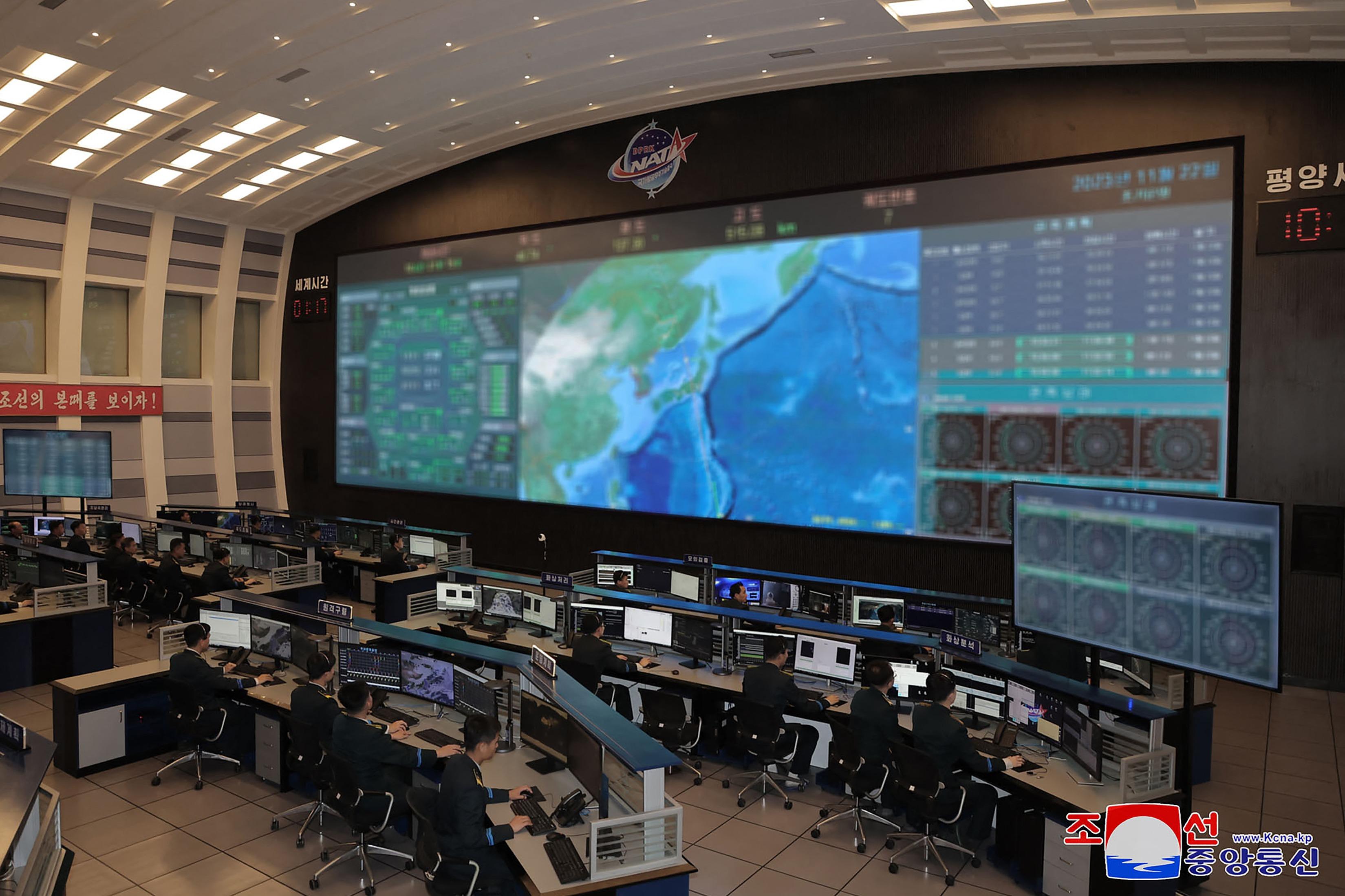 This picture taken and released on November 22, 2023 from the Democratic People's Republic of Korea's official Korean Central News Agency (KCNA) shows a view (screens digitally blurred as received from source) of the Pyongyang General Control Centre of the Korean National Aerospace Technology Directorate, a day after the launch of a rocket carrying the reconnaissance satellite 'Malligyong-1', in Pyongyang. (KCNA VIA KNS / AFP)
This picture taken and released on November 22, 2023 from the Democratic People's Republic of Korea's official Korean Central News Agency (KCNA) shows a view (screens digitally blurred as received from source) of the Pyongyang General Control Centre of the Korean National Aerospace Technology Directorate, a day after the launch of a rocket carrying the reconnaissance satellite 'Malligyong-1', in Pyongyang. (KCNA VIA KNS / AFP)
SEOUL - The aerospace agency of the Democratic People's Republic of Korea (DPRK) is trying to accelerate the fine-tuning of the reconnaissance satellite it placed into orbit last week, the official Korean Central News Agency (KCNA) reported Monday.
The fine-tuning of the reconnaissance satellite Malligyong-1 "is being hastened to end one or two days earlier," KCNA said, citing the Pyongyang General Control Center of the National Aerospace Technology Administration (NATA).
Kim Jong-un, general secretary of the Workers' Party of Korea and president of the State Affairs of the DPRK, expressed his "great satisfaction" with the successful preparations for the operation of the satellite
Kim Jong-un, general secretary of the Workers' Party of Korea and president of the State Affairs of the DPRK, expressed his "great satisfaction" with the successful preparations for the operation of the satellite, it said.
ALSO READ: KCNA: DPRK tested new solid-fuel engines for ballistic missiles
According to previous KCNA reports, the top DPRK leader had paid multiple visits to the Pyongyang General Control Center last week, during which he reviewed the preparations for the operation of the satellite and watched the aerospace photos it took.
In a separate dispatch on Monday, the KCNA issued a press statement by Kim Son Gyong, vice-minister for international organizations of the DPRK Foreign Ministry, saying the DPRK's reconnaissance satellite launch is "a legitimate and just exercise of its right to self-defense."
READ MORE: DPRK incorporates nuclear force policy into constitution
The Malligyong-1 will formally start its mission on Dec 1 after a 7-to-10-day fine-tuning process, the NATA said Wednesday, one day after the aerospace agency successfully launched a space rocket and sent its reconnaissance satellite into orbit.


